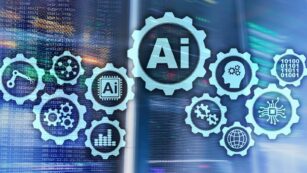In the swiftly evolving tech landscape, AI and machine learning have emerged as frontiers driving innovation and reshaping industries. This surge has sparked a significant demand for professionals skilled in these cutting-edge technologies. As businesses across various sectors strive to harness the power of AI and machine learning, the job market is witnessing an unprecedented expansion of roles dedicated to these domains.
AI Machine Learning Jobs
The Demand for AI Expertise
 The surge in interest and investment in AI (Artificial Intelligence) and machine learning technologies has catapulted the demand for skilled professionals to an all-time high. Companies across a broad spectrum of industries seek individuals capable of navigating the complex landscapes of AI and machine learning to drive innovation, enhance efficiency, and foster growth. The need for AI expertise is not just confined to tech giants; startups, healthcare organizations, financial institutions, and even governmental bodies are on the lookout for talent in this arena. This escalating demand underlines the critical importance of acquiring skills in AI and machine learning for those aiming to secure promising career paths in the tech field.
The surge in interest and investment in AI (Artificial Intelligence) and machine learning technologies has catapulted the demand for skilled professionals to an all-time high. Companies across a broad spectrum of industries seek individuals capable of navigating the complex landscapes of AI and machine learning to drive innovation, enhance efficiency, and foster growth. The need for AI expertise is not just confined to tech giants; startups, healthcare organizations, financial institutions, and even governmental bodies are on the lookout for talent in this arena. This escalating demand underlines the critical importance of acquiring skills in AI and machine learning for those aiming to secure promising career paths in the tech field.
Key Industries Driving Job Growth
Several key industries stand out as major contributors to the job growth in the AI and machine learning sector. Here’s a closer look at these industries:
- Technology and Software: As the backbone of the AI revolution, the tech industry continues to offer a plethora of opportunities for AI professionals. Roles vary from AI developers to machine learning engineers, focusing on creating smarter software and applications.
- Healthcare: Leveraging AI to improve patient care and outcomes, this sector requires specialists in AI and machine learning for drug discovery, diagnostic procedures, and personalized medicine efforts.
- Finance: The finance sector employs AI technology for risk assessment, fraud detection, and algorithmic trading, necessitating a workforce skilled in machine learning and data analytics.
- Automotive: With the advancement towards autonomous vehicles, the automotive industry seeks experts in AI to develop and refine technologies for self-driving cars.
Types of AI Machine Learning Jobs
 The surge in demand for AI and machine learning expertise has led to the creation of various job types within the field. Companies across tech, healthcare, finance, automotive, and retail sectors are actively seeking professionals who can drive innovation and growth through AI. These roles range from developing cutting-edge algorithms to implementing AI solutions that solve real-world problems. As the landscape of AI machine learning jobs continues to evolve, understanding the key roles can help aspiring professionals navigate their career paths effectively.
The surge in demand for AI and machine learning expertise has led to the creation of various job types within the field. Companies across tech, healthcare, finance, automotive, and retail sectors are actively seeking professionals who can drive innovation and growth through AI. These roles range from developing cutting-edge algorithms to implementing AI solutions that solve real-world problems. As the landscape of AI machine learning jobs continues to evolve, understanding the key roles can help aspiring professionals navigate their career paths effectively.
- Data Scientists: They analyze and interpret complex data to aid in decision-making, often building predictive models using machine learning algorithms.
- Machine Learning Engineers: Focus on designing and implementing machine learning applications and systems. They possess strong programming skills and an understanding of algorithms and neural networks.
- AI Research Scientists: Engage in pioneering research to push the boundaries of AI, requiring a deep understanding of various AI disciplines.
- Robotics Engineers: Develop robots that can perform tasks autonomously or with minimal human intervention, integrating machine learning for adaptability and efficiency.
- NLP Scientists: Specialize in natural language processing, enabling machines to understand and interpret human language, a crucial aspect of AI development.
Required Skills for AI Machine Learning Jobs
Pursuing a career in AI machine learning demands a comprehensive set of technical and soft skills. Given the variety of roles, from Data Scientists to Robotics Engineers, applicants must develop expertise in several key areas to stand out.
Technical Skills
Programming Languages & Mathematics and Statistics
 Proficiency in programming languages such as Python, R, and Java is crucial. Python, for instance, is widely used because of its extensive libraries and frameworks that simplify the tasks of data analysis and model development.
Proficiency in programming languages such as Python, R, and Java is crucial. Python, for instance, is widely used because of its extensive libraries and frameworks that simplify the tasks of data analysis and model development.
Understanding complex mathematical concepts and statistics is vital. The ability to create algorithms requires knowledge in calculus, linear algebra, and probability.
Data Modeling and Evaluation
Candidates need to excel in data modeling and evaluation strategies. This skill ensures accurate predictions and decision-making by analyzing the performance of machine learning models.
Knowledge of Machine Learning Algorithms
Familiarity with machine learning algorithms such as supervised and unsupervised learning, neural networks, and deep learning is necessary. This understanding allows for the design and customization of models to specific tasks.

